PATIENTS

Are you a candidate for active surveillance? You’ve been diagnosed with localized prostate cancer, so now what? You have treatment choices to make—starting with do you need treatment immediately? Your doctor has ordered the GPS test to help you find out.
How Genomic Prostate Score (GPS) Works
Follow Michael on his prostate cancer journey. His provider orders the GPS test after diagnosis with low risk localized prostate cancer to faciliate shared decision-making for treatment selection. GPS can help you identify the wolf in sheep’s clothing to predict your risk of more aggressive cancer.
Your Prostate. Your Decision.
Just as every patient is different, so is every prostate cancer tumor. The GPS test uses genomics to give you and your doctor important risk information about how your individual tumor will likely behave. Valuable insights include:
- How aggressive your cancer is
- How likely you are to die from your cancer within 10 years of surgery
-
How likely your cancer is to spread to other parts of your body (metastasis)
within 10 years of surgery
Your GPS result can help you and your doctor determine what type of treatment is right for you based on your tumor’s characteristics.

Is the GPS test right for you?
You may be a candidate for the GPS test if you have:
- Biopsy within 3 years
- Not started treatment
- Localized prostate cancer*

Download the GPS Patient
Brochure
No Family History
Testing Process
The Genomic Prostate Score (GPS) test is performed on a small tissue sample that’s already been taken from your most recent biopsy. Once the sample has arrived at the mdxhealth lab,* the GPS test measures the activity of the group of cancer-related genes that are in your tumor tissue. The activity of these genes can provide important information about how your specific cancer might behave in the future, including:
- Your level of risk for prostate cancer death
- How likely your cancer is to metastasize with 10 years after surgery
- Your risk for adverse pathology
*Testing performed at clinical lab in Irvine, CA.

Talking to your doctor about the GPS test
Like other lab tests, the GPS test must be ordered by a licensed healthcare provider (like your doctor). Whether you decide to get the test or not, you’ll certainly have a lot to talk with your doctor about.
Here are some questions you may want to ask:
- I understand that my prostate cancer is early stage and localized. What are my treatment options? What do you suggest for me and why?
- What are the benefits of each treatment option? What are the drawbacks/side effects of each one?
- How long do side effects of each treatment option last? Do they go away once treatment is complete?
- Is it okay to wait a few weeks to consider my treatment plan options before I have to make a decision about treatment?
- What are the chances of my cancer coming back if I choose to have surgery?

- What are the chances of my cancer coming back if I choose to have radiation?
- Am I a candidate for the Genomic Prostate Scorve (GPS) test?
- What is a Gleason score?
- If I am a candidate for the GPS test, how could we use the test results to develop my treatment plan?
- How can I get a copy of my pathology report and my GPS test results (if I’m eligible for the test)?
What to Expect
Each case of prostate cancer is unique. It’s important for you and your doctor to explore the management option that addresses your situation and can most appropriately manage your health. The results from the Genomic Prostate Score test can help you and your doctor better understand the likelihood of aggressive disease, so that together you can make decisions about how to treat your cancer.
FAQs
A genomic test examines the activity of genes within a sample of tumor tissue. The Genomic Prostate Score (GPS) test is a genomic test, which can help determine how aggressive your cancer is.
Active surveillance is a management plan for carefully monitoring the cancer in your prostate without treatment. Under active surveillance, you’ll have regular check-ups and ongoing testing, typically including:
- Checking prostate-specific antigen (PSA) levels
- Regular digital rectal exams
- Repeat biopsy as your doctor recommends
- Even with close monitoring via active surveillance, cancer might eventually progress. If your doctor observes any changes in your tumor, you might be advised to receive treatment.
If you are a man who has been recently diagnosed with prostate cancer and have not yet begun treatment with surgery or radiation therapy, the GPS test might be appropriate for you. The GPS test isn’t appropriate for those with advanced prostate cancer. The test can only be ordered by a licensed healthcare professional.
No. The results of the GPS test are intended to be used together with the results of other tests that are performed to evaluate prostate cancer. These include PSA level, Gleason score, and clinical assessment of tumor stage.
Once the lab* receives the sample of your biopsy from your pathologist, it usually takes about 2 weeks for the results to be available. The Genomic Prostate Score (GPS) report is sent to your doctor and/or the pathologist who submitted your tissue sample. Once they receive the report, they will contact you to discuss the results and their treatment recommendations for you.


















